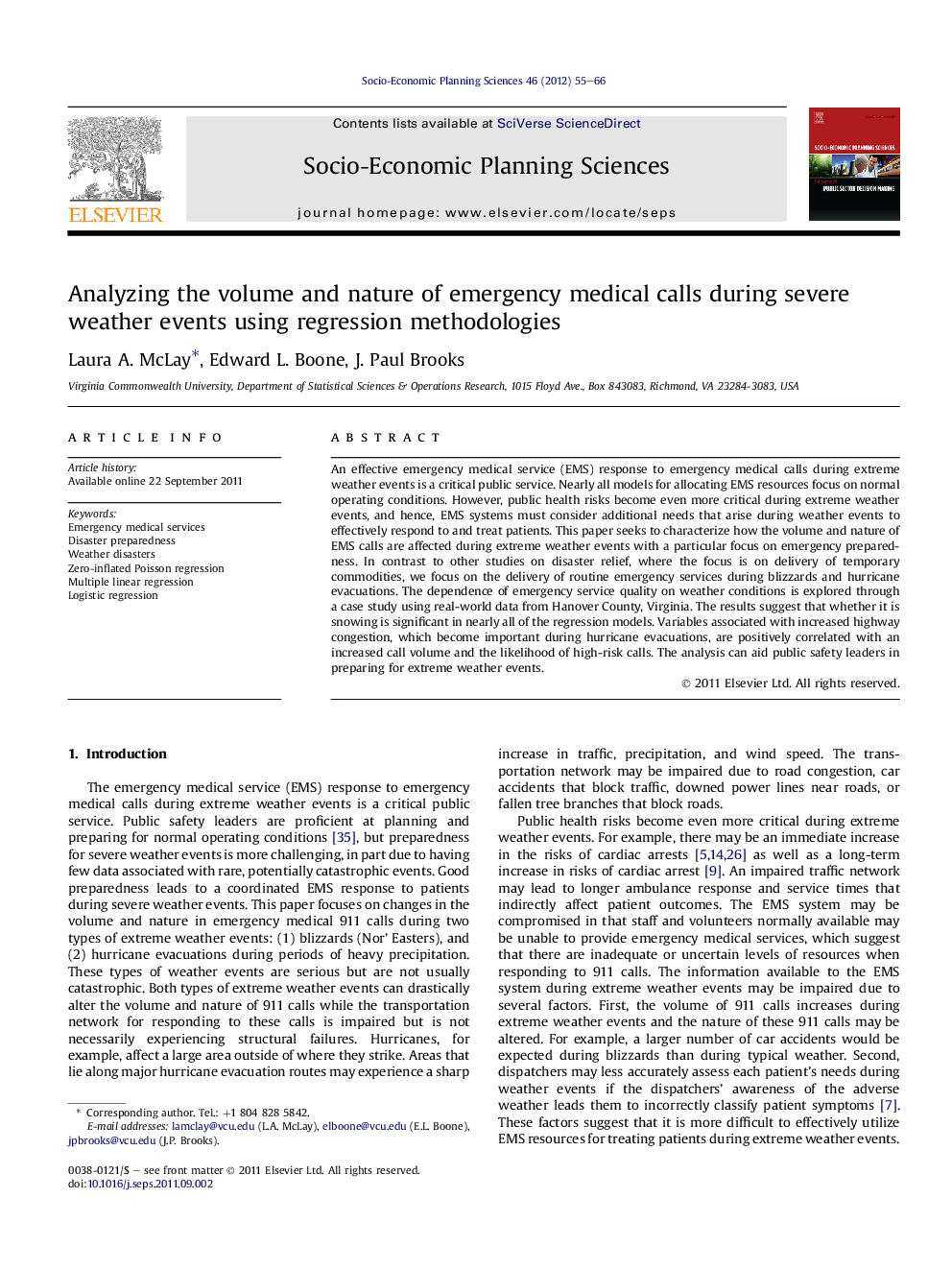| Article ID | Journal | Published Year | Pages | File Type |
|---|---|---|---|---|
| 987371 | Socio-Economic Planning Sciences | 2012 | 12 Pages |
An effective emergency medical service (EMS) response to emergency medical calls during extreme weather events is a critical public service. Nearly all models for allocating EMS resources focus on normal operating conditions. However, public health risks become even more critical during extreme weather events, and hence, EMS systems must consider additional needs that arise during weather events to effectively respond to and treat patients. This paper seeks to characterize how the volume and nature of EMS calls are affected during extreme weather events with a particular focus on emergency preparedness. In contrast to other studies on disaster relief, where the focus is on delivery of temporary commodities, we focus on the delivery of routine emergency services during blizzards and hurricane evacuations. The dependence of emergency service quality on weather conditions is explored through a case study using real-world data from Hanover County, Virginia. The results suggest that whether it is snowing is significant in nearly all of the regression models. Variables associated with increased highway congestion, which become important during hurricane evacuations, are positively correlated with an increased call volume and the likelihood of high-risk calls. The analysis can aid public safety leaders in preparing for extreme weather events.
► This paper characterizes how EMS calls are affected during extreme weather events. ► Snow and traffic but not rain are significant for predicting the EMS call volumes. ► The analysis can aid public safety leaders in preparing for extreme weather events.
